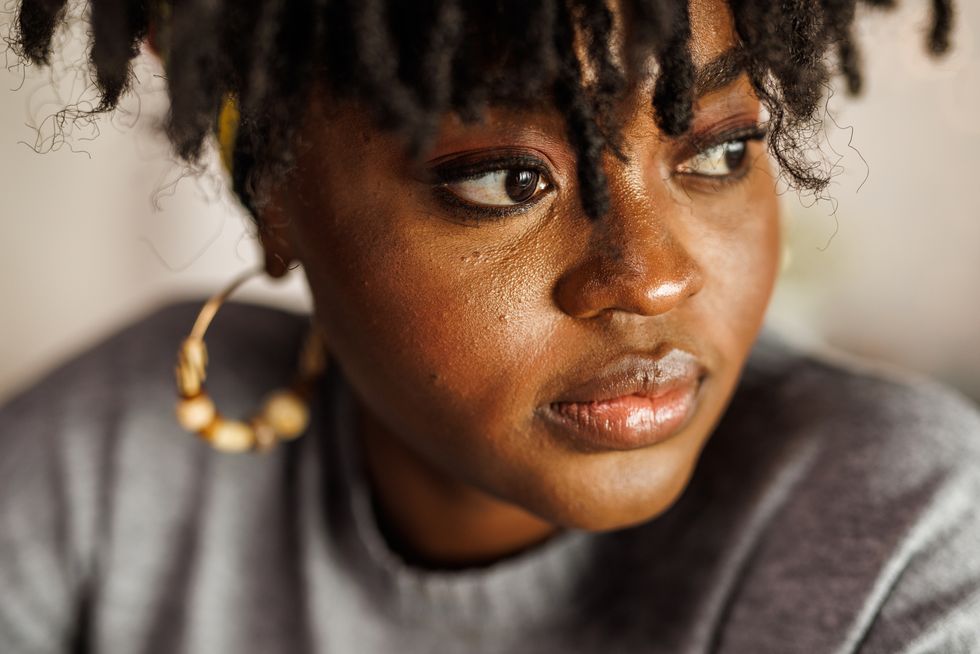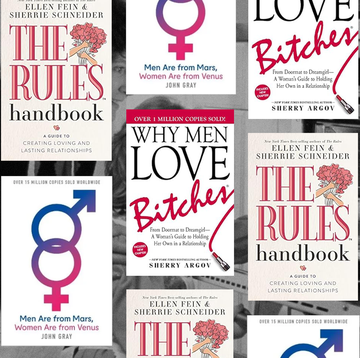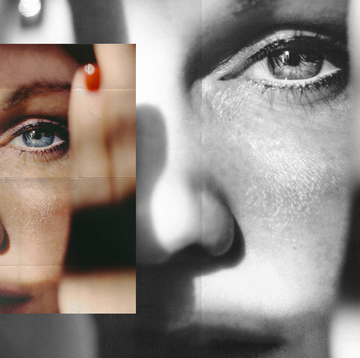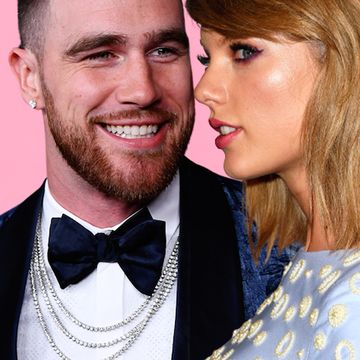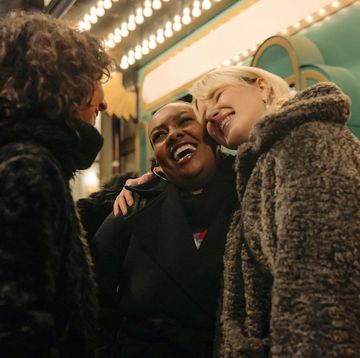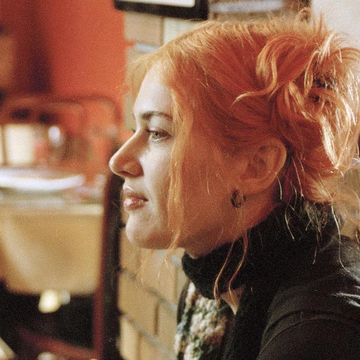If we’re honest with ourselves, we all have that one person we’ve always wondered about, or never quite been able to move on from. If it feels clichéd, it’s a clichéd for a reason —there’s something deeply relatable about that ‘one that got away’ feeling.
Netflix’s hit reboot of One Day – which sees protagonists Emma and Dexter yearn for each other across decades and continents, plagued by that obsessive ‘what if’ feeling – perfectly captures the longing that experts call “limerence”.
It’s a bittersweet emotion that we all love and hate to indulge in. You only have to look at the popularity of shows like Normal People – in which schoolmates Connell and Marianna pine for each other over the course of several years and multiple attempted relationships – or the not-so-subtly named What If…? In which Wallace and Chantry grapple with their feelings for each other, never quite being able to make it work for evidence of how much we love to indulge in on-screen depictions of nostalgia mixed with a yearning for what could have been.
What is limerence
But what happens when that ‘what if’ feeling evolves from guilty fantasy and melancholy romanticism into obsession? Well, you might have fallen into limerence. Coined by experimental psychologist Dorothy Tennov in her 1979 book Love and Limerence: The Experience of Being in Love, limerence describes a state of obsessive infatuation, accompanied by the intense desire for a romantic relationship. It’s your delusionship taken to the extreme.
Limerence doesn’t affect everyone, explains Dr Sarah Taylor, a cyberpsychologist at Cardiff Metropolitan University, but that almost 50% of the population may experience this state at one point or another. Limerence is a cognitive obsession, experienced as an intense feeling of being in love, and is “an uncontrollable and all-consuming addictive state, which is often unexpected in its onset and can result in an obsessive attachment to the person of desire,” Taylor explains.
Limerence can feel so addictive because it’s a state of uncertainty and hopefulness about the potential relationship with the limerent object – the term used for the person you’re in limerence with. “This arousal may be exhibited as excitement (i.e., at the possibility that their love may be reciprocated) and fear (i.e., intense fear of rejection) and is often characterised by extreme mood swings. [A person experiencing limerence might feel] a drug-like “rush” of euphoria when the person of interest demonstrates even the smallest amount of interest towards them – such as a smile,” says Taylor.
How to stop limerence
While it may feel like an overwhelming fixation on someone else, Tamara Hoyton, Senior Practice Consultant at Relate, says that limerence is more often than not about yearning something that’s missing in ourselves. “If there’s something about our life that we perceive as a deficit, so that might be a sense of disempowerment or a lack of agency, and then we meet someone who exhibits signs of being a rescuer we might look for those traits in them, even if it’s not real. It’s about what’s missing in us that we want them to fulfil,” Hoyton explains.
So the good news is that addressing your limerence is more about you than it is them. Hoyton suggests it’s important to “get back in touch with reality” (that’s therapist speak for “touch grass”), and try to see your limerent object as the flawed, imperfect, real person that they are. They might seem like “The One” to you, but remember, to someone else they’re just an annoying co-worker. She then recommends reflecting on "what you're projecting onto that person," and asking yourself where you can find it in other aspects of your life. Dr Taylor also brings good news: limerent states tend to last between 18 months and three years, so your yearning will end, eventually.
Here, three people share their experiences with being in limerence.
What limerence feels like
“It was the desire to want to be seen and valued by this person” – Nick*
“I met David* at an arts group. I was 23 at the time and still coming to terms with being trans and recovering from top surgery. So, I was in a relatively vulnerable place and I didn’t have very good self esteem. David was older, about 31, and the leader of the group’s trans choir. They were very charismatic and good at talking to people, and they were attractive and very proud of being queer. Because I’m also a bit musically talented, they asked me to help run the choir.
I think the emotion behind [my limerence] was more envy and attraction more than anything. It was the desire to be seen and valued by this person who was further along in their journey than I was. In hindsight, I wasn’t necessarily attracted to them, they were very charming but not always genuine. That gave me a lot of anxiety as well. Every time I saw them, I would be struck with all these feelings of “oh, this person is amazing”, but also “I feel really uneasy around this person”. It felt very intense.
I managed to move on because I spent a lot of time figuring out what I was actually feeling. I started therapy around that time too, which helped me work through some of my feelings. Eventually, I realised that while I admired them professionally, I didn’t actually want a friendship or anything else from them. I think that knowing them, even if we weren't friendship material, really did transform me because I thought so much about how they thought about people and that made me reflect on how I was taking care of other people.”
“I realised at some point that it was ruining my life” – June*
“It was always a part of me. The first one I remember was my best friend at primary school. I must have been around seven years old. I moved to the school and was pretty quickly obsessed with him, very jealous of his best friend, and when I moved school again after a few months I kept thinking about him and spending time with him for years. I always had best friends, and I guess that evolved into something more romantically charged as I got older. I would usually have someone I was obsessed with. Friends, colleagues, partners. It was like a “ghost” that would get stuck on different people — but it never got stuck on a viable romantic partner for very long. Thinking about someone is a way to be intimate with them, if you can't actually be close to them. And it builds from there, repeating and repeating like a short circuit.
At first it's very stimulating, like being on a strong coffee all the time. But there's also a lot of guilt – being obsessed with someone who doesn't feel the same way is kind of like privately stalking them. That's not a nice feeling, knowing that you're in a relationship that could never be reciprocated – you'd never even want someone to feel this way about you, because it's creepy, and totally unviable.
This most recent one, for a while it got to the point when I'd think about her whenever I wanted to feel nice, like if I was winding down to sleep. It was very soothing. I think I knew that wouldn't last forever though – it's a kind of devil's bargain where you do get that nice feeling, but you're also feeding the other side of it which is a desire to make it reality. I realised at some point that it was ruining my life. I'd spend all my time thinking about a particular person, and then if I was lucky they'd move away or something and I could get some respite, and then a few months would pass and it started up again with someone new. So I started working on it at therapy. When you look it up online you just see posts like: "I've felt this way for ten years, nothing works, I can't stand it" and that's sort of terrifying. I addressed it in two ways. The first was a technique I invented, I don't remember how. I just remember that I once made myself think "I'm a real person" and just imagined myself coming into a solid shape – and the feeling went away. The second thing I did was to tell the person I was obsessed with at that time. This is a real gamble and I'd hesitate to recommend it. In my case, it probably killed my friendship with this person, but they were really kind about it and helped me work through it without shame, and I’m really grateful for that.”
“I’d rather be around her and get hurt than not at all” – Abby*
“I think I have an obsessive, addictive personality – I always get completely and utterly infatuated with my crushes, like tunnel vision only for them. I became single again last year, and all of a sudden it’s like I saw my friend with fresh eyes for the first time. I suddenly realised I had a crush on her, and started seeing her in a romantic light. She was really supportive during my breakup, and we grew incredibly close very fast. I think I’m stuck on her because I just really fancy her and think she’s an amazing catch. She’s absolutely stunning, tall, strong, successful, and has the charming golden retriever energy that I gravitate towards.
The catch is though, that she’s currently dating someone, so I’m kind of in misery about it all. She’s incredibly flirtatious, touchy, and affectionate with me though, and seems unhappy with her relationship, so I’m allowing myself to feel slightly delulu about the possibility of us being together in the future. Some days it makes me incredibly sad, other days like when we have a perfect fun night out together, I feel on top of the world just to be spending time with her. It’s a rollercoaster. A smart person would probably take a step back from the friendship for self preservation, but I don’t care. I’d rather be around her and get hurt than not at all. I honestly don’t think I will move on until she either marries her current partner, or they break up and I finally have a chance to show her how I feel and see what happens. I don’t think the feelings will go away.”
*Names have been changed

